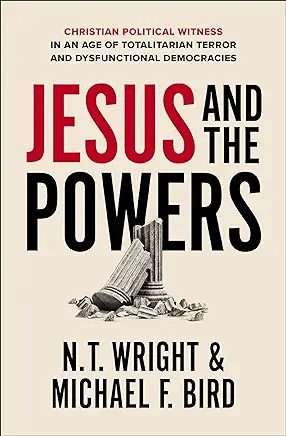One of the major problems with a Reformed approach to the sovereignty of God is that it sometimes ignores the progressive nature of revelation in the Bible, and at times this means ignoring that the further one goes in the Bible, the more recognition is given to the fact that God has allowed there to be viable secondary causes in the universe whether angels or humans, and they are indeed morally responsible for their own actions. Their actions, and in particular their sin has not been pre-determined by God, for the good God of the Bible is not the author or cause of sin and evil in the universe. But it took God’s people some time to come to grips with the idea of the difference between what God directly wills, and what he simply permits because he has given angels and humans some limited power of choice, including the power of choices contrary to God’s revealed will.
This growing awareness of secondary causes can be seen in the historical literature, where in Samuel we hear about Instead of “the anger of the LORD” (2 Samuel 24:1), the one who persuaded David to carry out a census is “Satan”, a Hebrew word which should be translated as “an adversary” rather than a personal name, more likely is the same figure mentioned in Job 1:6ff and Zechariah 3:1ff. More examples could be given. We could talk about how in Exodus multiple times we hear about Pharaoh hardening his own heart, and then we also hear also about God hardening his heart. Is God simply confirming Pharaoh’s already chosen course of action, or did God cause it in the first place? It is precisely because of such issues that it is never sufficient to simply make assertions like ‘God raises up and causes the demise of leaders and empires’ as if it was God’s will that Nazism and the killing of 6 million Jews in death camps could be attributed directly to God.
Nor is it sufficient when one turns to the NT to simply say Christ on the cross has destroyed or caused the demise of the principalities and powers, whereas these same Scriptures refer to Satan continuing to be the ruler of this world, a roaring lion, and causing havoc in the world. Perhaps one could use the language of O. Cullmann, that the cross is the turning point, the D Day, in the battle of God vs. the evil powers, but what it is not is the elimination of such powers, or their complete disarming. The picture one gets reading carefully, is that through the power of the Spirit, God’s people have the power to resist temptation, and do good. If Christ is Lord of one’s life, then there is not room for other lordships in one’s own life. Genuine Christians cannot be demon possessed etc. One person has put the scenario as follows— “God made a perfect beginning/ we spoiled his creation by sinning/ we know in the end that God’s side will win/ but at present the other side seems to be winning.” Well, yes, when you look at the mess in Israel and Gaza in spring 2024 it sure appears to be true. The book of Revelation lays out in stark terms the need for God through Christ to judge the world, both in preliminary and in final fashion, and this involves judging human beings at war with God and God’s values and will, in a world where Christians are being persecuted, prosecuted, and even executed for their faith. Satan is alive and well on planet earth, and will not be off the playing field until Christ returns (see Rev. 19-20).
What one can say in more general terms is what Rom. 13 does say, which is that all power and authority ultimately comes from God, and he allows human governors and governments to have some power and authority to keep the peace to do the good, and to raises money to provide the necessary means of keeping that peace. But as Jesus says to Pilate—he would have had no authority over Jesus, if God had not permitted and given it.
In its extreme forms, Reformed theology about God’s sovereignty can lead to a sort of fatalism— whatever happens must have been God’s will. This is closer to Islamic theology than Biblical theology.













